Why This Book? The Conundrum of Virality and A Fine Dessert
 Friends, Romans, Countrymen. Lend me your ears. I come to discuss A Fine Dessert, not to praise it or denigrate it. Not to really talk much about the book itself at all except as a recent phenomenon. A phenomenon unique to our particular day and age and that remains relatively mysterious, despite (or perhaps because of) the thousands of people who have found themselves wrapped up in the discussions that surround it. Discussions that, insofar as I can tell, show no signs of coming to a halt.
Friends, Romans, Countrymen. Lend me your ears. I come to discuss A Fine Dessert, not to praise it or denigrate it. Not to really talk much about the book itself at all except as a recent phenomenon. A phenomenon unique to our particular day and age and that remains relatively mysterious, despite (or perhaps because of) the thousands of people who have found themselves wrapped up in the discussions that surround it. Discussions that, insofar as I can tell, show no signs of coming to a halt.
Now if there’s anything that bugs me online it’s when blogs, Twitter accounts, and Facebook feeds talk about an issue without bringing up to speed those folks who have remained ignorant of the discussion from the start. So in the event that you get ALL your children’s book news through my particular blog (an act that I do not recommend as my weekly reporting skills are spotty at best), a quick summary that I will call “The Tale of A Fine Dessert”.
ADVERTISEMENT
ADVERTISEMENT
Actually, I’m not entirely certain where the A Fine Dessert controversy first began. Maybe it was on August 4th when a blog called Trybrary wrote a piece that brought up Illinois librarian Elisa’s concerns with how the book chose to depict the slaves in the story. This, in turn, was mentioned by Calling Caldecott and subsequent Twitter discussions seem to be dated to late October at this point. What sets the discussion apart from many others about issues in children’s books is that it didn’t stay relegated to the world of librarians, children’s book bloggers, teachers, and author/illustrators. My first clue that the talks had gone viral occurred when NPR’s Codeswitch picked up on the story on October 30th. The New York Times followed suit soon thereafter on November 6th, but if you think the discussion would stop there how wrong you are. Daniel José Older uploaded a video of himself on a panel criticizing the book in early November. Since then it’s pretty much continued to be mentioned online, the most recent discussion happening when Sam Juliano wrote about it on his site Wonders in the Dark (185 comments and rising as of this post). And I think it is safe to say that Sam’s will not be the last place the book is discussed this year or next.
So here is my question to you today: Of all the books that are considered controversial or debatable in terms of content and quality, why has the A Fine Dessert debate exploded while others have stayed relatively under the radar? Lest you harbor the notion that the book is extraordinary in its content, some of the issues surrounding the book were contained in other 2015 picture books depicting slavery and will continue to exist in 2016. In 2015 alone I’ve heard people debating problematic elements (specifically involving race) in books like Sometimes I Feel Like a Fox, An Invisible Thread, Home, and Over the Hills and Far Away, just to name a small sampling. Yet nothing has touched a nerve like A Fine Dessert. Why?
If social scientists could figure out what makes a topic viral online we’d all be living in a very different world. As it is, this could just be the case of the book coming out at precisely the moment when discussions about slavery have actually been on our newscasts at night. Recall that it was as recent as late June / early July of this year that debates raged over whether or not the Confederate flag would be removed from the South Carolina House. But even that doesn’t explain the book discussions’ continual presence online.
Perhaps the perpetual interest isn’t just due to our increased awareness of depictions of all races, genders, religions, and sexuality in our books for youth. A Fine Dessert is a picture book and traditionally picture books are debated for not just their writing but their images as well. People who challenge books have known this for years. You can object to content for some books (like And Tango Makes Three, The Lorax, Where the Wild Things Are, etc.), and to the images in others (The Rabbits’ Wedding, Sylvester and the Magic Pebble, In the Night Kitchen, etc.). If both words and pictures are deemed offensive in some way then the book has more of a chance of offending a wider swath of people. This is why the Frequently Challenged Books list of ALA always has plenty of slots filled with graphic novels. Images carry a different power than words.
In the end, the answer may be a simple one. Perhaps A Fine Dessert is so heavily debated because unlike some of the other 2015 books I’ve mentioned, it has supporters that are as outspoken as its critics. Sometimes when people discuss a book there will be a sense that one side or another has “won” the debate regarding the quality of the title. What’s remarkable about this book is that the debate does not feel one-sided. And just as one side quiets down, the other side speaks right up again.
To be continued? I think that goes without saying.
Filed under: Uncategorized
About Betsy Bird
Betsy Bird is currently the Collection Development Manager of the Evanston Public Library system and a former Materials Specialist for New York Public Library. She has served on Newbery, written for Horn Book, and has done other lovely little things that she'd love to tell you about but that she's sure you'd find more interesting to hear of in person. Her opinions are her own and do not reflect those of EPL, SLJ, or any of the other acronyms you might be able to name. Follow her on Twitter: @fuseeight.
ADVERTISEMENT
ADVERTISEMENT
SLJ Blog Network
2024 Books from Pura Belpré Winners
Winnie-The-Pooh | Review
Parsing Religion in Public Schools
Finding My Own Team Canteen, a cover reveal and guest post by Amalie Jahn
ADVERTISEMENT



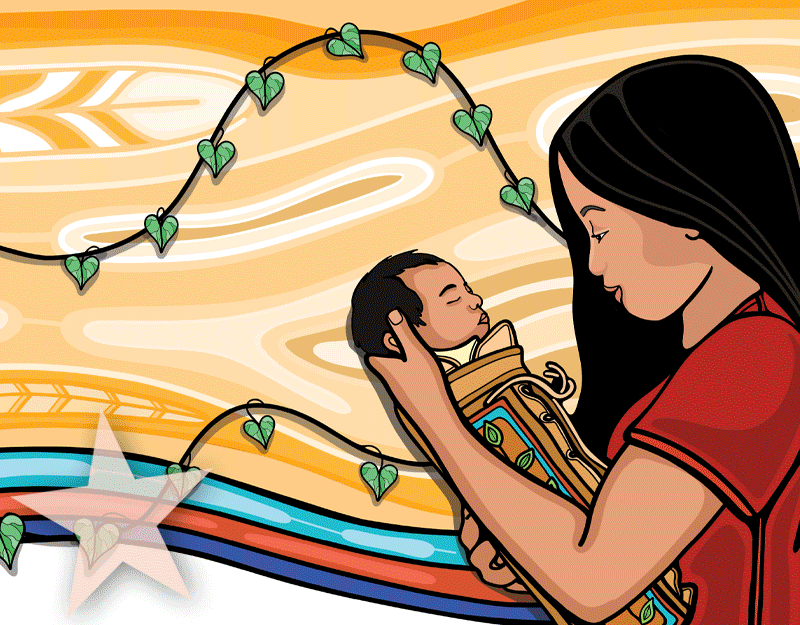
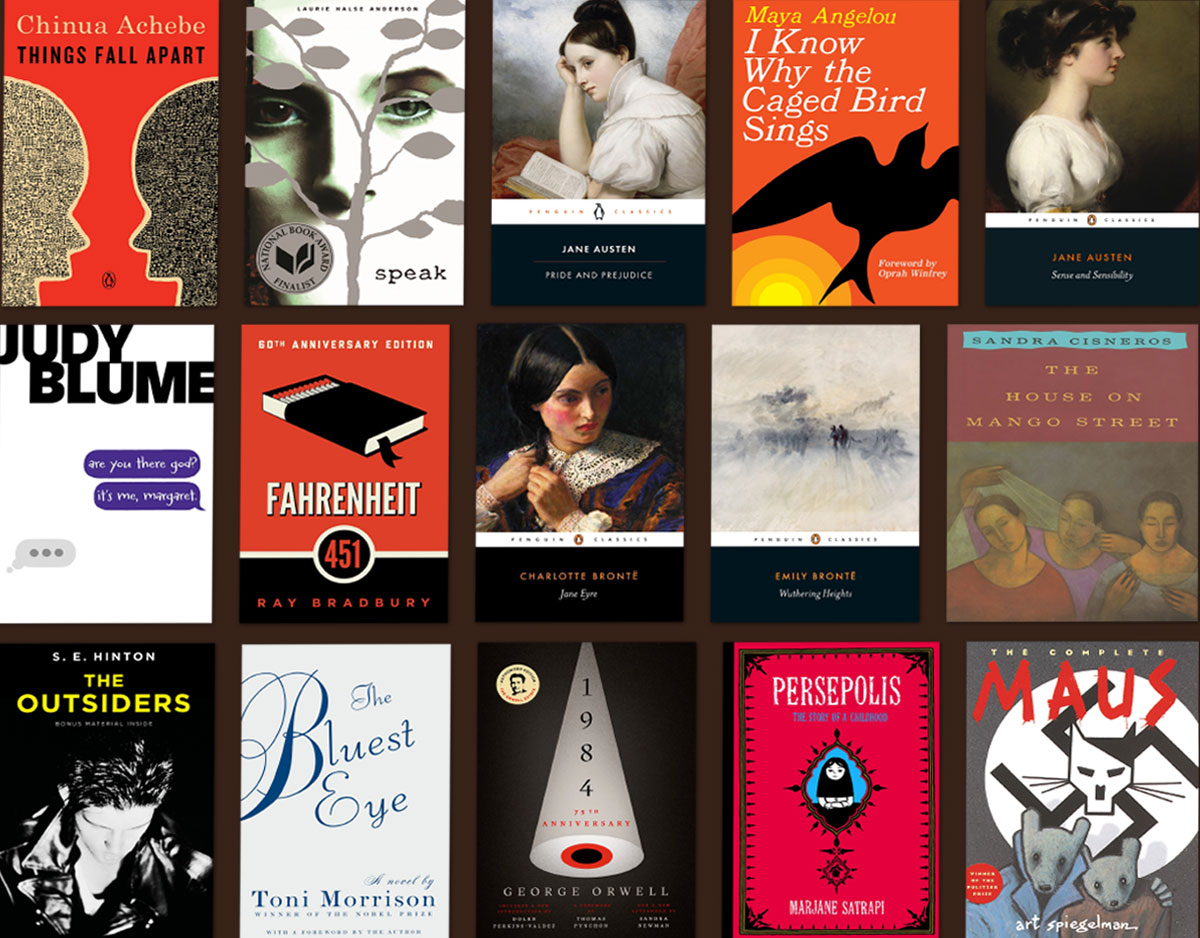
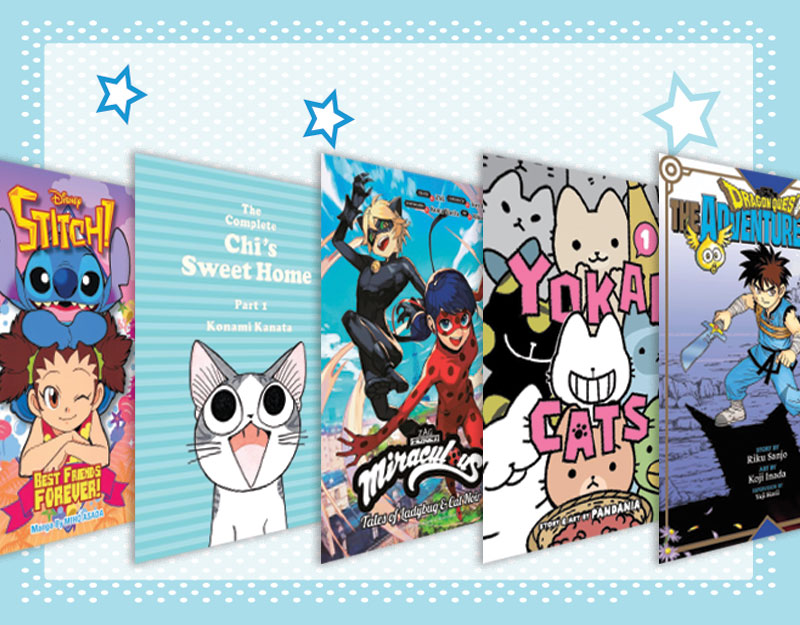
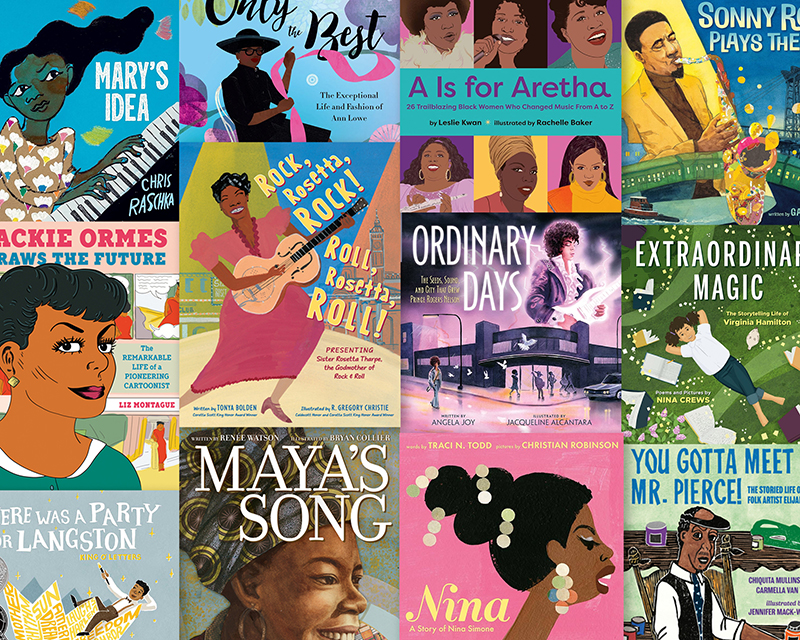
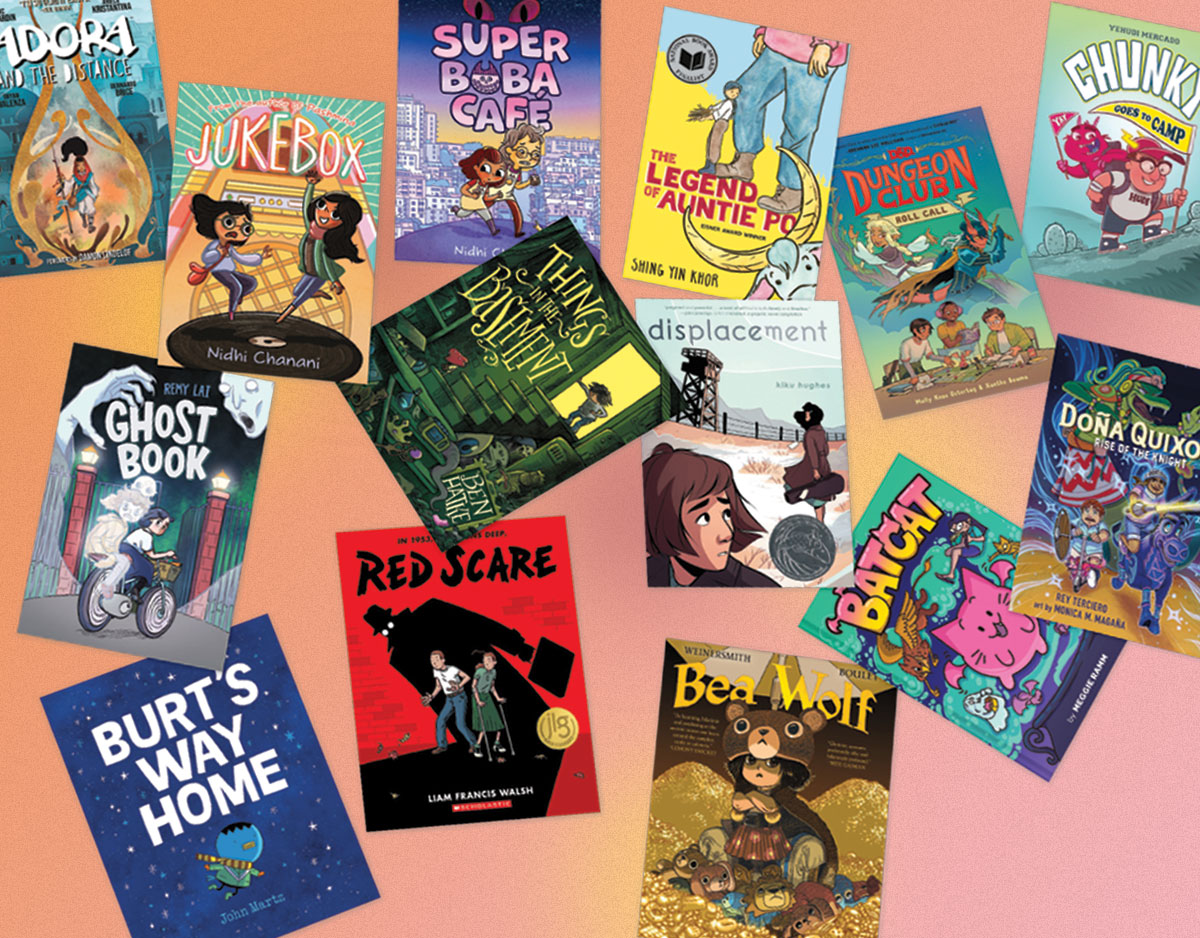
Lovely writing as usual, Betsy. You raise some excellent, germane questions.
As a gay man, I’ve always been fascinated by the myriad ways the LGBTQ community has been portrayed in children’s literature. Sometimes I’m appalled, sometimes I’m delighted – but I bring my own history and my own interpretations with me. My experience as a member of a sexual minority is not going to be even remotely like anyone else’s. It just isn’t. It is my own lived history that comes with its own very personal (and often painful) experiences.
Sometimes something I read rips open the hurtful parts of that history, and sometimes it doesn’t. I’m glad this happens, even when it hurts. It opens me up to experience and to reflection and healing. I love that literature can do this, even when it provokes an unsavory reaction from me.
And I think this is what much of the conversation around A Fine Dessert is really about: personal reactions to text and image. It’s the final image in the book, the huge dinner, that brought me to tears. How far we’ve come. And we still have so much work to do. A little love letter to looking to a bright, welcoming future – but we have to work for it.
Joe, in the first three paragraphs of your comment I need to substitute only three words to be able to say the identical same thing. “Gay to Jewish; LGBTQ to Jewish; sexual to religious”. At the core, human beings are so much more alike than different. We all want to feel respected and worthy; to feel accepted and like we belong.
Betsy, thanks so much for recapping the history and locations of this debate. I think it would be wonderful if social scientists were to study all of our remarks and help us understand the meaning of what we are saying.
Diversity has been a hot topic for many months and numerous books are mentioned as examples of what many find inappropriate. I think you are correct when you say A Fine Dessert has supporters who want to be heard. I fall into this category. In my case, I am expressing myself because USUALLY I agree with the critics, but in the case of .A Fine Dessert (and The Hired Girl) I do not. The issues discussed are extremely important to me. I just don’t feel those two books represent the issues.
Perhaps the discussion feels so intense and so important because it mirrors the turmoil many of us are feeling about the political divide and the importance of getting it “right” when each of us votes in November.
Thanks for being an objective voice in raising questions like this, Betsy. I have to say that I’m pretty sure that this particular controversy (as well as the one about The Hired Girl) has contributed directly to my worst blogging funk in 10 years. There’s just too much conflict – too much negativity. Too many people sure that they are right, and that other people are wrong. My nature is to retreat from that, and I think it’s contributing to me not wanting to blog at all. Of course that speaks more to my own internal flaws than to the issues at hand. But there you have it.
A natural reaction. In spite of my thesis here, I think that generally speaking everyone is pretty exhausted. Someone asked me not too long ago if this level of rage could maintain itself. It can’t, but I’m not sure what that means for books, online discussion, and blogging in general from here on in. The long term repercussions are as yet unknown. For my part I’m seeing good things come of all this, and bad things too. Time will tell.
I see an early presage of the controversy in PUBLISHERS WEEKLY’s review of A FINE DESSERT. The reviewer was obviously troubled by the depiction of slavery and felt that needed more context for young children. At the time, I interpreted that to mean a wish to shield young readers from being presented with the unfair fact of slavery at all. It’s possible that the reviewer meant the book didn’t show the enormity of slavery. Either way, that was a sign that the book would hit a sensitive nerve or two.
I’m not sure why discussions of some books reached a wider audience this year, while others didn’t. I do think, though, that the conversations about those specific books have been as much about the larger issues they exemplify as about their individual content.
I also can’t say I agree that this type of widespread criticism is a new, or recent development. If there’s frustration and anger, maybe part of it lies in the fact that these conversations are in fact old and relatively unchanging ones. (Though, it also seems like for some, the word “rage” gets applied no matter how criticism is framed and delivered.) There’s of course the history of the Council on Interracial Books for Children, for example, which heavily criticized many books that predominantly white gatekeepers had lauded:
http://collectingchildrensbooks.blogspot.com/2009/04/this-one-really-did-happen.html?m=1 http://www.jstor.org/stable/3042264?seq=1#page_scan_tab_contents http://www.jstor.org/stable/pdf/20193551.pdf?seq=1#page_scan_tab_contents
And within the larger context of children’s media, there’s a similarly long history of protest and critique. http://www.umbc.edu/cadvc/foralltheworld/section2/protest.php Debbie Reese has pointed to the long history of activism concerning representations of Native people, and there are histories for other groups as well.
Many people have been pointing out problems all along the way, in everything from academic studies to blog posts to newspaper articles to organized protests. I agree that critiques are finding traction in the present moment, as they have at other times in the past… and that for children’s books, social media has opened them up to a less insular audience (and maybe made it slightly less risky for some within the field to speak, too.) But, there was already plenty of critical discussion of books like Ghost Hawk in recent years, for example. I wonder if part of a recent change is in the perception (fear?) among some that people making critiques now have more power.
I absolutely agree that critical discussions of children’s books are by no means new. For example, I thought about mentioning the objections that surrounded Margot Zemach’s JAKE AND HONEYBUNCH GO TO HEAVEN back in 1987 (Roger can speak to that better than I, but it was QUITE a big deal back then). However, even when people were criticizing GHOST HAWK the conversation did not go “viral” as it were. Only people concerned every day with children’s literature were talking about it. Look at A FINE DESSERT in contrast. VH1’s website weighed in, for heaven’s sake. That kind of widespread discussion goes far beyond our little sphere, and I like to explore precisely why. Why this particular book when others have, arguably, more problems?
I’ve had your post, Betsy, in mind all week, trying to sort out some of my own thoughts on it. I want to think more about characterizing it as “two sides” because doing that makes it seem like two sides that are equal in their power to effect change/policy/etc. They aren’t equal. We all know that.
I want to reflect, for now, on the people who are pointing to the problems in A FINE DESSERT. I am one of them. You also note Daniel Jose Older. Though I haven’t met him in person, I do know that we, in our respective spaces, are active in protests. Our activism is online but also offline. I attend protests and have planned them, too, because of my life experiences.
I come at books like this A FINE DESSERT from a life characterized by assaults. The most frightening one was when I was pulled over and interrogated by a sheriff in Oklahoma. All the while, I was terrified that any “wrong” move or answer on my part could put my daughter (she was in the car watching all this) in a horrible situation.
I believe books like A FINE DESSERT have an impact on society. They let people feel like society is good, that things are behind us. Several people have pointed to the last page of the book, saying “how far we’ve come.” I have a different reaction. I see the people gathered around the table and I think about interracial couples I know–myself included–and the things we go through. The gathering at the table is a truth, but it is a truth hides other truths: of interracial couples who are pulled over by police (this happened to a friend) who think the black male is abducting the white female.
To characterize the response to A FINE DESSERT as two sides hides too much.
It reduces the lives that POC live to a happy picture that makes those who do NOT live that life feel a warmth that is not justified. A warmth that leads to complacency and/or a mindset that asks why we’re protesting. A mindset where the first response is to ask what the person being stopped by police did, rather than to look at the structures that make it possible for racial profiling to occur in the first place.
In his video, Daniel Jose Older said that a community of people was involved in the creation of that book.
Society is composed of lots of communities, where everyone in those communities wants to life a good life. That isn’t the reality for a lot of us. The depth and breadth of the response to A FINE DESSERT reflects the work we do and the lives we lead outside the pages of a book. I wish the larger community was one that would listen to us rather than try to refute what we contribute to this discussion. That constant refutation is exhausting. It is what led me to snipe to Sam Juliano, that I hoped he’d retire soon. I apologize, Sam, for saying that to you.
I’ll be thinking more about your post, Betsy. As my thoughts on it coalesce, I may be back here, or, I may write about this on my site.
Debbi Reese,since you wrote it, it makes sense to ask you directly —
Why did you write, “I wish the larger community was one that would listen to us rather than try to refute what we contribute to this discussion”?
Dictionary.com has two definitions for the word “refute.”
1.to prove to be false or erroneous, as an opinion or charge.
2.to prove (a person) to be in error.
Do you really wish in a book discussion that people who listen and disagree with you and your “us” would not share their senses of what may be false or in error? As educators and librarians, Is that an ethic we want schoolchildren to learn from our example?
Merry Christmas to you and your family.
I can’t believe the discussion around these books is being characterized as “rage.” Good grief I’ve been in more heated arguments over what pizza to order.
Debbie, no problem. I also apologize to you for my less than hospitable comments. I know that discussion heated up, but I think we are all the more wiser for it. I know you are a lovely person.
Two quotes explain much, but not all, of what’s going on here with this book.
On the one hand, we have Debbie Reese writing on your blog yesterday, saying –
“The depth and breadth of the response to A FINE DESSERT reflects the work we do and the lives we lead outside the pages of a book. I wish the larger community was one that would listen to us rather than try to refute what we contribute to this discussion.”
On the other hand, we have President Obama telling NPR yesterday, as quoted in this morning’s New York Times, in reference to protests by students of the left against campus speakers they didn’t like very much –
“’Feel free to disagree with somebody’,” the president said, “but don’t try to just shut them up.”
The contrast is stark. Reese says that people who disagree with her we-group should just listen and be quiet, because of who her we-group is and what they’ve done in their lives. Obama says that those who don’t agree with the we-group should not be shut up. Many of those willing to take on the Reese we-group respect Reese and her colleagues’ work a great deal, but still prefer Obama’s stance. I don’t know about your readers Betsy,, but when I’ve been listening well, have a considered disagreement, and someone tells me that I should not refute them, that’s when I start writing.
There are other reasons for what’s going on with A FINE DESSERT.
• This kerfuffle may actually have its roots in the discussion of Schultz’s THE HIRED GIRL, where a number of bloggers and critics excused involvement in the conversation despite not reading the whole book. You pointed this out in an earlier blog post. Evidently, their position is that only right-wing Christians are required to read a whole book that upsets them in order to comment on it, but not left-wing multiculturalists.
• As others have pointed out, the opponents to A FINE DESSERT are among the strongest voices supporting the creation of safe spaces for people of color and members of minority communities. So are many of the proponents of the book. The irony is that the opponents’ accusations of “you’re not listening”, racism, and ad hominem attacks that require apology do just the opposite of creating a safe space. This is especially bad in Tweets and reTweets, but its hard to feel safe in comments sections, which is why there is much pseudonymous posting. For what it’s worth, Meg Rosoff’s “Stormtroopers” tweet falls into this category too.
• Most important, A FINE DESSERT is gorgeous, well-written, and subject to multiple interpretations as all great texts are. If the book were ugly, a mess, and wholly off-target, no one would care.
As for where this will all go, I have no idea. I do think that many people have been emboldened by this conversation, for better or for worse. I want to end by thanking Betsy Bird for her leadership and devotion to children’s books. It cannot be acknowledged sufficiently. As a long time educator and observer but first time participant, I am grateful for all she does.
Bella, I think your comment is a perfect demonstration of what Debbie is saying. Listening to someone else is not the same thing as being shut up. The fact that many (in this case many white people) experience it that way is a large part of what holds these discussions back. I keep seeing the word censorship crop up in these conversations, too, which I have to admit makes me laugh. Hundreds of active, engaged comments in several threads is not what censorship looks like. The statistics that come out from the CCBC every year are.
Your comment also demonstrates another problem with the idea of sides. There is no we-group of left-wing multiculturalists silencing people in pursuit of safe spaces. (Though I still like the idea of Diversity Jedi.) There are individual human beings with individual perspectives and experiences– some of which include what it means to actually be shut up and shut out in this country, and in this field.
“Perhaps A Fine Dessert is so heavily debated because unlike some of the other 2015 books I’ve mentioned, it has supporters that are as outspoken as its critics”: I suspect that answers to the important questions asked here might be found through further explorations of this possibility. What intrigues me is why so many people in the culture of children’s publishing in the US love this particular book so much. It must, somehow, accurately represent what people with power in this field understand as excellence. And, somehow it seems so completely excellent to such people that its minimizing misrepresentation of slavery seems less important in the context of this book than it otherwise would to the liberal humanists who are the bulk of successful children’s book people. Is it possible that the downplaying of the ugliness of slavery is just part of a larger attitude that emerges from the particular kind of liberal humanist philosophy that A Fine Dessert neatly represents and that holds sway in children’s publishing? Is that attitude discernible in other aspects of the book? I suspect it does and is. A closer look at A Fine Dessert might point to a whole lot of not necessarily attractive aspects of the whole range of books for young people that get good reviews and award nominations, and therefore, offer insight into the values that have power in the children’s book world.
Perry,
I think supporters of it–from those who created it to those who embrace it–feel that in creating and teaching and sharing it, they’re doing a good and brave thing because they’re showing a dark part of America’s history, and “how far we’ve come” (on the last page) motivated by a desire to believe in a “post racial” society. We’re not there yet.
The idea of a “post racial society” is a feel-good fiction that feeds structural racism and implicit biases that are no good for any of us. Feel-good fictions of equality that, in fact, feed injustice and fault individuals rather than the systems that hurt all of us. A feel-good fiction that believes that Betsy is objective–that it is, indeed, even possible to be “objective.”
I expect that future scholars/writers/reviewers (in short, everyone in the children’s book community) will look back on the discussion of A FINE DESSERT as one that signaled a shift in children’s literature, that it will be written about as a discussion that revolutionized the industry.
Hmm? L’il old me objective?
Sort of like the idea of people carrying on feel-good fictions about me, though. Who wouldn’t?
A number of people chose A Fine Dessert among their best books of the year at The Horn Book:
http://www.hbook.com/2015/12/featured/top-five-choices-please/
Thanks for your question, Perry. It’s one that I (and I think others) was trying to ask about and through The Hired Girl discussion, too.